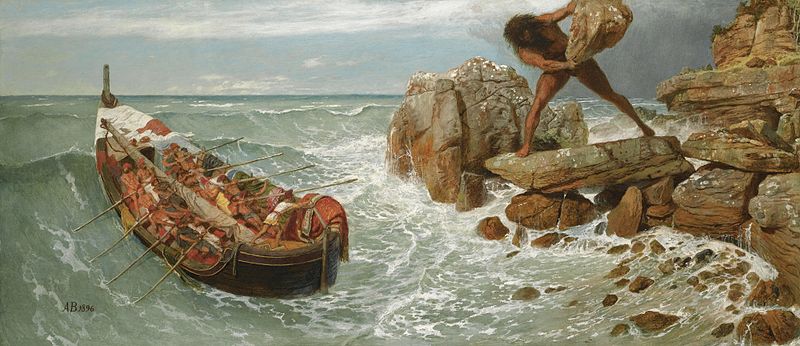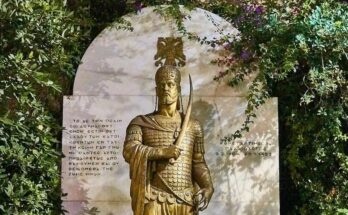Nostalgia has become a defining trait for Millennials and Gen Z-ers. In recent years, adult toy sales have surged, and the creation of adult coloring books has followed suit. However, this longing for yesteryears isn’t new.
The concept of nostalgia in ancient Greece was a significant cultural force, shaping the lives and stories of Greek heroes and seafarers.
The ancient Greek word nostalgia
The word “nostalgia” originates from the Greek words nostos (return home) and algos (pain).
The Greeks, often separated from their homeland due to their seafaring culture, experienced this feeling of longing as an essential part of life.
In ancient Greece, nostalgia wasn’t merely about missing home; it was about the emotional and psychological struggle that accompanied it.
This deep, often painful yearning resonated throughout their literature.
Nowhere is this longing more visible than in their myths, which vividly capture the essence of the concept.
The enduring theme of nostalgia in myths

Greek myths often tell stories of embarking on new adventures, but their final destination is always a return home. Odysseus, the hero of Homer’s Odyssey, embodies this feeling.
His decade-long journey home after the Trojan War represents the ultimate expression of nostos and the powerful force of nostalgia in ancient Greece.
Despite the temptations and challenges along the way, his longing to return to Ithaca epitomizes the Greek experience of nostalgia. This journey wasn’t just physical. It was a mental and emotional struggle, a fight to reclaim a lost sense of self.
During the war, Odysseus took on the roles of general, soldier, and tactician. However, his return home marked a return to who he once was, away from these personas.
He yearned to return to his life as a husband and father, and home was as much a mental state as it was a place.
Another example of nostalgia in ancient Greece can be found in the story of Jason and the Argonauts. After retrieving the Golden Fleece from the distant land of Colchis, Jason and his crew of Argonauts faced numerous trials on their return to Iolcus, their homeland.
From the Sirens’ call to the bronze giant Talos guarding the island of Crete, the unfamiliar tried to doom the heroes, never to return home.
Thus, the return home in these myths symbolizes their yearning to reconnect with their origins and reclaim their identities after years of adventure and separation.
Yet, these desires weren’t just wistful tales. They were rooted in the reality of ancient Greek life.
The Greek psyche: a life of movement and separation

The ancient Greeks led lives marked by constant movement, often taking them far from home for extended periods. Their voyages across the Mediterranean created a unique relationship with the home concept.
They didn’t just travel. They left behind their families, communities, and everything familiar. This profound pain of separation in ancient Greece gave rise to the concept of nostos, the homecoming.
Greek colonies dotted the Mediterranean from Sicily to Asia Minor. Often isolated, these colonies created a deep sense of separation from the mother city, reinforcing the concept of nostalgia in ancient Greece.
For example, Cyrene in modern-day Libya was a distant outpost, far removed from the Greek mainland. The settlers there, surrounded by foreign cultures and landscapes, would have keenly felt the sting of nostos.
Additionally, Greek traders spent months, even years, at sea, navigating the waters between Egypt, Italy, and Greece. These voyages were not just physical journeys. They were mental and emotional separations from everything familiar.
The traders’ return home brought both joy and the bittersweet recognition of what had changed during their absence. Nostalgia naturally arose as a response to the pain of separation, offering a way to cope with the loss of the familiar.
Consequently, nostalgia intertwined with memory in ancient Greece served to preserve an identity. The Greeks didn’t merely recall events. They relived them, kindling the essence of who they were.
Nostalgia as part of identity
In ancient Greece, recalling home preserved identities, aside from helping them cope with the unknown. This longing for home reflected a worldview shaped by constant travel and separation. It permeated their culture, influencing their literature.
For instance, remembering epic poetry became a way to preserve the past. Poets recited whole sagas and performed them in front of audiences. Narratives about the Trojan War were cultural artifacts that united the Panhellenic world.
Similarly, origin myths about the construction of cities like Thebes by Dionysus and the Macedonian dynasty by the mythical founders, the Argeads, legitimized peoples.
These stories acted as cultural touchstones, keeping the Greeks’ collective memory alive and binding them to their history and identity.
The role of memory in ancient Greek nostalgia

Nostalgia depends on remembering a place, whether physical or emotional. Memory plays a crucial role in nostalgia because you can’t long for something you don’t remember.
However, in ancient Greece, memory wasn’t just an idle exercise of recalling what once was. The Greeks believed that memory was fundamental to securing a positive future.
This belief finds reflection in the story of Mnemosyne, the goddess of memory. Greek mythology portrays Mnemosyne as one of the Titans and the personification of memory.
She wasn’t just a goddess but also the mother of the nine Muses, the goddesses of the arts, literature, and science. Mnemosyne and Zeus, the king of the gods, spent nine consecutive nights together, and from their union, the Muses were born.
Each Muse presided over a different domain of the arts and sciences, ranging from epic poetry to astronomy. Mnemosyne’s role as the mother of the Muses carries particular significance.
The Muses inspired the creation of art, poetry, music, and other cultural expressions passed down through generations. In this way, Mnemosyne symbolizes the preservation of knowledge and culture through memory.
She embodies the idea that memory forms the foundation of all creativity and knowledge, bridging the past and present.
This connection between memory and creativity underscores the Greeks’ importance of remembering.
To them, memory wasn’t just about recalling facts. It was about keeping the past alive and ensuring that the past’s lessons, stories, and experiences continued to influence the present.
Mnemosyne’s significance in Greek mythology highlights how essential memory was to their past and to their future.
One of ancient Greece’s enduring concepts
Just as nostalgia defines the cultural landscape of Millennials and Gen Z-ers today, it profoundly influenced the ancient Greeks. Their myths, voyages, and memories reveal how this longing for the past shaped their identities and inspired their future.
The enduring concept of nostalgia in ancient Greece resonates, reminding us that the desire to return home—whether to a place, time, or state of mind—is a timeless human experience.



